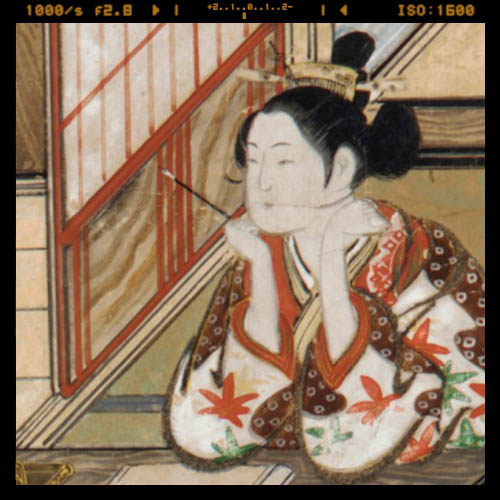Ask a Badass is an advice column answered by history’s hidden badasses, writing as they see their whole lives and our modern world.

Dear Badass,
I’ve always known that I’m a writer. I went to a really good school for creative writing, and I’m proud of the writer I’ve become. I knew it meant that I would have to do some form of non-writing work to try to pay off my debts as I write my first book. It’s what I planned to do, and I’m so aware that I should be grateful I found an actual, salary-paying job.
I didn’t know I’d hate it so much. I’m an assistant in an advertising agency, and everyone around me is so intense about what they’re doing. I couldn’t care less and, anyway, it’s not like I’m writing pitches. I’m doing schedules and booking flights and filing expense reports. I’m so miserable that I’m finding it hard to write when I get home. I just want to go out drinking with my friends. What do I do?
Why Don’t I Feel Lucky?
Dear Why Don't I Feel Lucky?,
When society imposes gratitude, it’s being horribly uncouth. You have a right to feel what you feel. It sounds as if you are trying to erase your unhappiness with the knowledge of your fortune. You may be able to find a balance, or a peace, by meditating on all that opposes your current suffering, but you must cease to try to convince yourself that you are happy. Lying to yourself can only dull your senses.
Everything that I love in my work came from my sensitivity. I could describe the soul of a character or that heartbreak of an instant through the brushstroke of detail because I took everything in. My poems, especially the ones I traded with Lady Koshosho, were a game of evocation through only the details needed. I spent much of my life in my father’s home not just because he encouraged my studies but also because he understood and protected that part of me.
Empress Shōshi invited me to her court because she admired my writing and, in truth, I do not know how else I would have been given the paper or the time to travel all the places my Tale of Genji would go. Like you, I knew I must be grateful for the rare honor I’d been given. I loathed it. The men of the court behaved like drunken bears, crashing through our paper walls and pawing at the delicately wrapped ladies. Some of the women of the court were so beautiful it seemed like moonlight had been poured into slender bodies and encased in the deepest silk. Some of the women, however, were vicious and stupid, and the attendants of the two rival empresses never ceased to peck at each other.
I could not leave. It would shame my father and my daughter to refuse an Empress. It might even endanger them, with the ministerial branch of the Fujiwara playing their cutthroat political games. I was too quiet for the Empress’ liking, but I was smart enough to know there were intricate alliances around us that we could not see. I knew, too, that the only way this sprawling story in my head would leave my pen before I left this life was through the opportunities the Empress offered.
I do not know if my answer will be yours, but I offer you my solution. I found a measure of comfort in the balancing of accounts. I was not tumbling blindly but had carefully taken the measure of my situation and found the safest course. Most importantly, I did not seek to close off from the noise around me. I brought my sensitivity to bear as I trained my eyes on the court. Each interaction, each person in my sphere, in some way informed my epic tale. I was privileged to see a life that few could imagine. I recorded it in my diary and filtered it into my book.
What if you knew that your job would inform your work? You say you do not care for your job, but you also say there are many around you who do. How often do you think you will have the opportunity to dispassionately watch people pursue something passionately? Each one of the people you encounter through your job has a story for you to find. How do you know which one will inspire you until you really look?
A word more, and I will lay down my pen in the hopes that you will take up yours. It is a particular joy to spend time with friends you care about. Be sure that you are seeking joy, though, not oblivion. Alcohol can be a celebration or a shared relaxation in small amounts. In large or daily amounts, however, it can dull the very emotions that you will need to call upon to complete your book. You have sacrificed to become a writer. You now must dedicate your time and energy to write.
Muraski Shikibu
Born sometime around 975 A.D. to scholar and minor official Fujiwara no Tametoki, likely in the imperial capital of Kyoto. Died sometime before 1031 A.D. of unknown causes. Though her real name has been lost to history, Murasaki Shikibu’s The Tale of Genji was revered in her lifetime and is now known to historians worldwide as the first novel. She likely began it around the time of her husband’s death in 1001 and circulated chapters as she finished them. She attended one of two rival empresses and with her support, not only finished her sprawling epic but also wrote a diary and a collection of 128 poems as memory, both of which provide a wealth of detail of life in the Heian court.
Fill out our form, and we’ll let you know if one of the badasses responds!